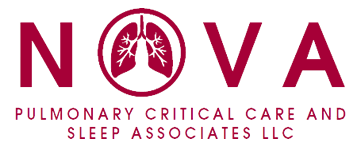Snoring is a common sleep-related phenomenon characterized by noisy breathing during sleep, typically caused by vibrations of the soft tissues in the upper airway. It is often considered a nuisance for both the person who snores and their sleep partners, as it can disrupt sleep quality and lead to daytime fatigue and irritability.
When we sleep, the muscles in the throat and tongue relax, and the airway becomes narrower. In some individuals, this narrowing of the airway can lead to turbulence as air passes through, causing the soft tissues (such as the uvula, soft palate, and throat walls) to vibrate, resulting in the characteristic sound of snoring.
Several factors can contribute to snoring, including:
- Anatomy: Certain anatomical factors, such as a narrow airway, enlarged tonsils or adenoids, a thick or long soft palate, or a deviated septum, can increase the likelihood of snoring.
- Age: Snoring becomes more common with age, as muscle tone in the throat decreases and tissues become more relaxed.
- Obesity: Excess weight can lead to fatty deposits around the neck and throat, contributing to airway narrowing and snoring.
- Sleep Position: Sleeping on your back can increase the likelihood of snoring, as it allows the tongue and soft tissues to fall back into the airway more easily.
- Alcohol and Sedatives: Consuming alcohol or certain medications that relax the muscles can exacerbate snoring by further relaxing the throat muscles.
While occasional snoring is often harmless, chronic and loud snoring can be a sign of underlying sleep disorders such as obstructive sleep apnea (OSA), where breathing temporarily stops during sleep due to airway obstruction.
Treatment options for snoring depend on its severity and underlying cause. Lifestyle changes like losing weight, avoiding alcohol close to bedtime, sleeping on your side, and maintaining good sleep hygiene can help reduce snoring. Additionally, devices such as oral appliances, nasal strips, or CPAP (continuous positive airway pressure) machines may be recommended for more significant snoring or if sleep apnea is suspected. It’s important to consult a healthcare professional if snoring is frequent, loud, or accompanied by other symptoms like daytime sleepiness or gasping during sleep, as it may indicate an underlying sleep disorder that requires medical attention.


Office Locations
Conveniently located near you in Loudoun and Fairfax VA
NOVA Pulmonary – Dulles
24430 Stone Springs Boulevard
Suite 200
Dulles, VA 20166
NOVA Pulmonary – Lansdowne
19415 Deerfield Avenue
Suite 301
Landsdowne, VA 20176
NOVA Pulmonary Critical Care and Sleep Associates is committed to providing excellent care in all aspects of Pulmonary Medicine and Sleep Disorders. With offices located in Lansdowne and Dulles/South Riding, we offer care for the entire Northern Virginia region, serving locations from Chantilly, Fairfax, Centreville, Manassas, Gainesville to Reston, Sterling, Leesburg, Ashburn, Brambleton, Purcellville and more.
Meet the team at NOVA Pulmonary Critical Care and Sleep Associates

Dr. Aditya N Dubey, M.D, F.C.C.P. – Founder
Specialty:
Pulmonary, Critical Care and Sleep Medicine
Board Certified by American Board of Internal Medicine in the Subspecialities of Pulmonary Medicine, Critical Care Medicine and Sleep Medicine. Learn more about Dr. Dubey

Dr. Petra Thomas, M.D.
Specialty:
Pulmonary Medicine
Board Certified by American Board of Internal Medicine in the Subspecialities of Pulmonary Medicine. Learn more about Dr. Thomas

Dr. Arman Murabia, M.D.
Specialty:
Pulmonary, Critical Care and Sleep Medicine
Board Certified by American Board of Internal Medicine in the Subspecialities of Pulmonary Medicine, Critical Care Medicine and Sleep Medicine. Learn more about Dr. Murabia

Rebekah Lee, AGNP-C
Nurse Practitioner. Learn more about Rebekah Lee

Christine Amorosi, AGNP-C
Nurse Practitioner. Learn more about Christine Amorosie
